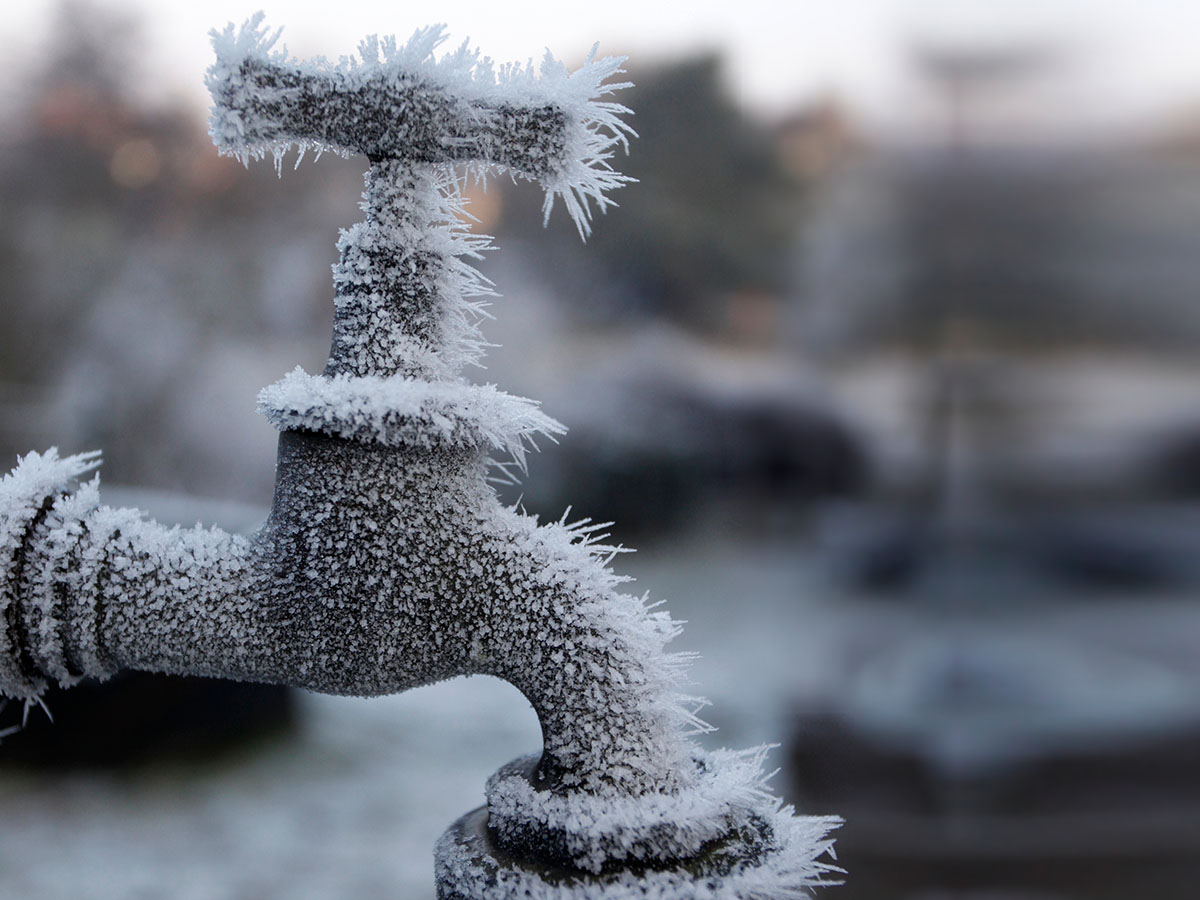Ways to Maintain Your Pipes from Freezing Damage: Crucial Guidance
Ways to Maintain Your Pipes from Freezing Damage: Crucial Guidance
Blog Article
Are you currently trying to locate critical information around Helpful Tips to Prevent Frozen Pipes this Winter?

Cold weather can ruin your plumbing, especially by freezing pipelines. Right here's just how to avoid it from taking place and what to do if it does.
Introduction
As temperatures decline, the risk of frozen pipelines rises, potentially resulting in expensive fixings and water damage. Understanding exactly how to avoid icy pipelines is critical for homeowners in cold climates.
Comprehending Frozen Pipes
What causes pipes to ice up?
Pipelines freeze when revealed to temperatures listed below 32 ° F (0 ° C) for expanded periods. As water inside the pipelines freezes, it broadens, putting pressure on the pipe walls and potentially causing them to break.
Risks and problems
Icy pipelines can cause water system disruptions, property damage, and costly repair services. Ruptured pipelines can flooding homes and create extensive structural damages.
Indicators of Frozen Pipes
Identifying icy pipelines early can stop them from breaking.
Exactly how to identify frozen pipes
Look for lowered water circulation from faucets, unusual smells or sounds from pipes, and noticeable frost on revealed pipes.
Prevention Tips
Shielding prone pipes
Cover pipes in insulation sleeves or use warmth tape to safeguard them from freezing temperature levels. Concentrate on pipes in unheated or outside locations of the home.
Heating techniques
Maintain interior rooms effectively heated up, specifically areas with pipes. Open closet doors to enable cozy air to distribute around pipelines under sinks.
Safeguarding Exterior Plumbing
Yard tubes and outside taps
Disconnect and drain yard hoses before winter season. Set up frost-proof spigots or cover exterior faucets with shielded caps.
What to Do If Your Pipelines Freeze
Immediate activities to take
If you presume icy pipelines, keep taps available to ease pressure as the ice melts. Make use of a hairdryer or towels taken in warm water to thaw pipes gradually.
Long-Term Solutions
Architectural changes
Think about rerouting pipelines away from exterior wall surfaces or unheated areas. Add additional insulation to attic rooms, cellars, and crawl spaces.
Updating insulation
Purchase top quality insulation for pipes, attic rooms, and wall surfaces. Correct insulation aids preserve constant temperatures and decreases the danger of frozen pipelines.
Final thought
Preventing icy pipelines needs positive actions and fast actions. By comprehending the causes, indicators, and preventive measures, homeowners can secure their plumbing during winter.
Helpful Tips to Prevent Frozen Pipes this Winter
UNDERSTANDING THE BASICS: WHY PIPES FREEZE AND WHY IT’S A PROBLEM
Water freezing inside pipes is common during the winter months, but understanding why pipes freeze, and the potential problems it can cause is crucial in preventing such incidents. This section will delve into the basics of why pipes freeze and the associated problems that may arise.
THE SCIENCE BEHIND FROZEN PIPES
When water reaches freezing temperatures, it undergoes a physical transformation and solidifies into ice. This expansion of water as it freezes is the primary reason pipes can burst. As the water inside the pipe freezes, it expands, creating immense pressure on the walls. If the pressure becomes too great, the pipe can crack or rupture, leading to leaks and water damage.
FACTORS THAT CONTRIBUTE TO PIPE FREEZING
Low Temperatures: Extremely cold weather, especially below freezing, increases the risk of pipes freezing. Uninsulated or Poorly Insulated Pipes: Pipes located in unheated areas, such as basements, crawl spaces, or attics, are more prone to freezing. Insufficient insulation or lack of insulation altogether exacerbates the problem. Exterior Wall Exposure: Pipes running along exterior walls are susceptible to freezing as they encounter colder temperatures outside. Lack of Heating or Temperature Regulation: Inadequate heating or inconsistent temperature control in your home can contribute to frozen pipes. PROBLEMS CAUSED BY FROZEN PIPES
- Pipe Bursting: As mentioned earlier, the expansion of water as it freezes can cause pipes to burst, resulting in significant water damage.
- Water Damage: When pipes burst, it can lead to flooding and water damage to your property, including walls, ceilings, flooring, and personal belongings.
- Structural Damage: Prolonged exposure to water from burst pipes can compromise the structural integrity of your home, leading to costly repairs.
- Mold and Mildew Growth: Excess moisture from water damage can create a favorable environment for mold and mildew growth, posing health risks to occupants.
- Disrupted Water Supply: Frozen pipes can also result in a complete or partial loss of water supply until the issue is resolved.
WHY CERTAIN PIPES ARE MORE PRONE TO FREEZING
- Location: Pipes located in unheated or poorly insulated areas, such as basements, crawl spaces, attics, or exterior walls, are at higher risk of freezing.
- Exterior Pipes: Outdoor pipes, such as those used for irrigation or exposed plumbing, are particularly vulnerable to freezing as they are directly exposed to the elements.
- Supply Lines: Pipes that carry water from the main water supply into your home, including the main water line, are critical to protect as freezing in these lines can affect your entire plumbing system.
- Underground Pipes: Pipes buried underground, such as those connected to sprinkler systems or outdoor faucets, can be susceptible to freezing if not properly insulated.
https://busybusy.com/blog/helpful-tips-to-prevent-frozen-pipes-this-winter/

Hopefully you enjoyed our excerpt about 6 Ways to Prevent Frozen Pipes. Thank you so much for finding the time to browse our blog. Are you aware of another person who is fascinated about the topic? Please feel free to promote it. Many thanks for your time. Come back soon.
Order Repair Report this page